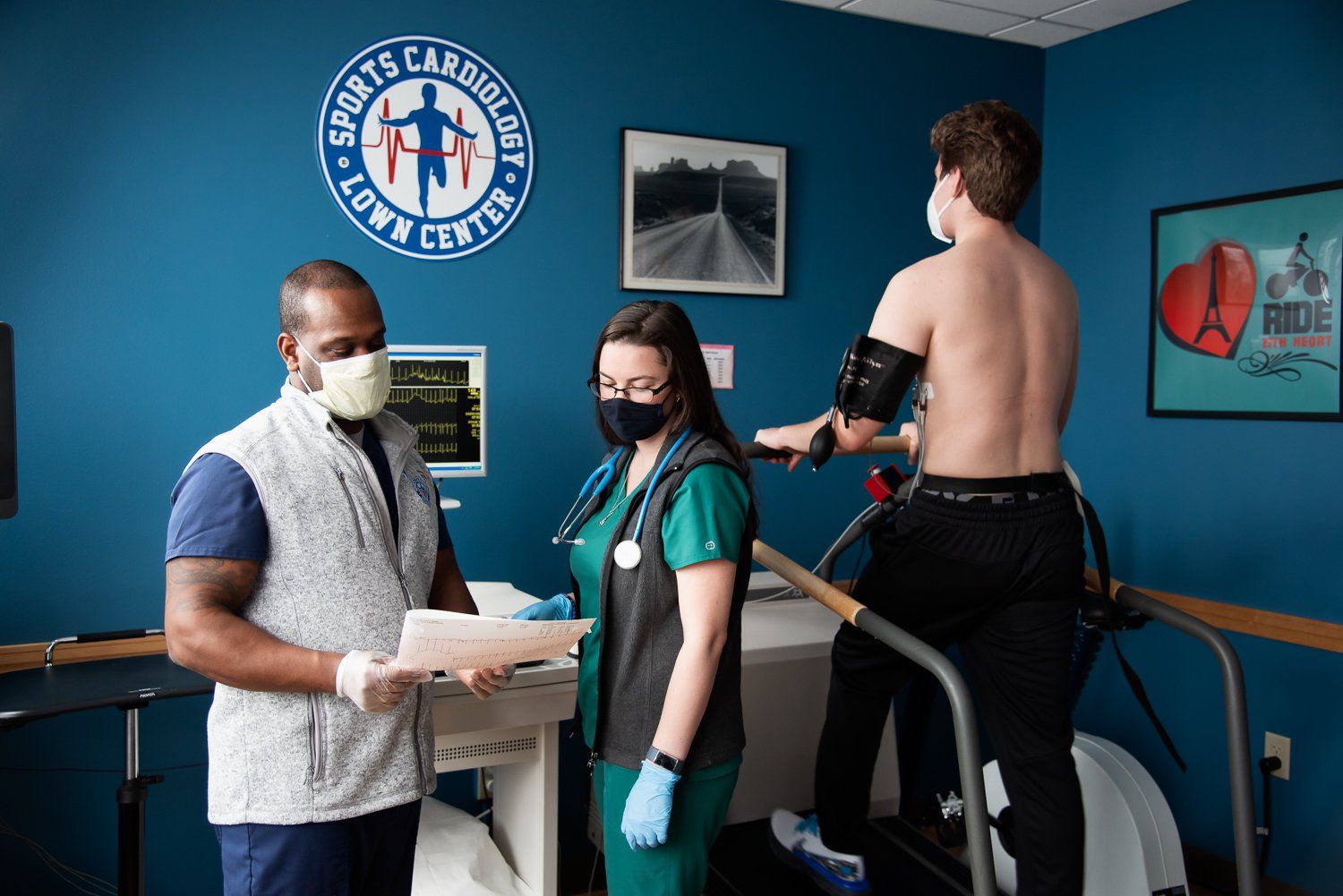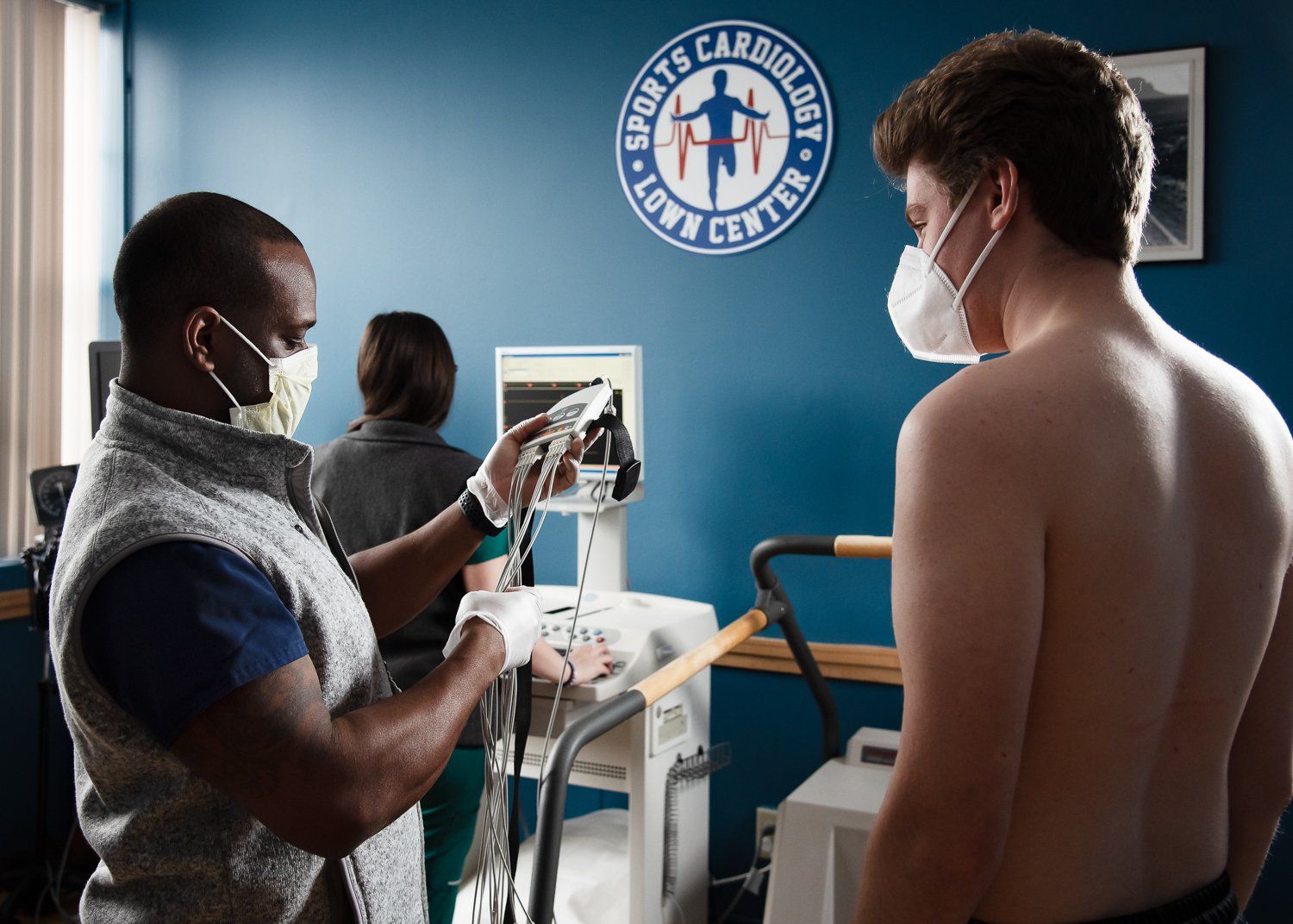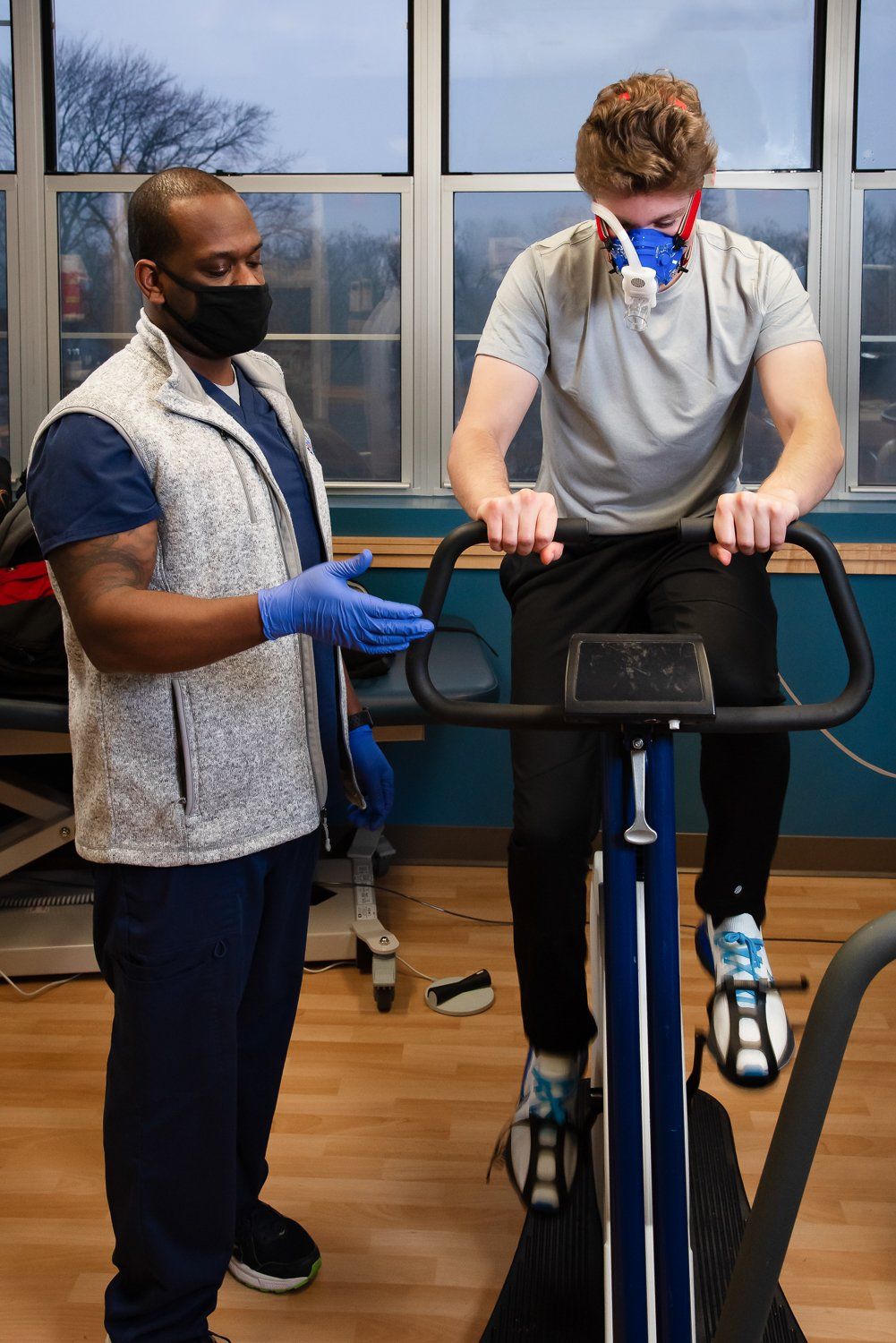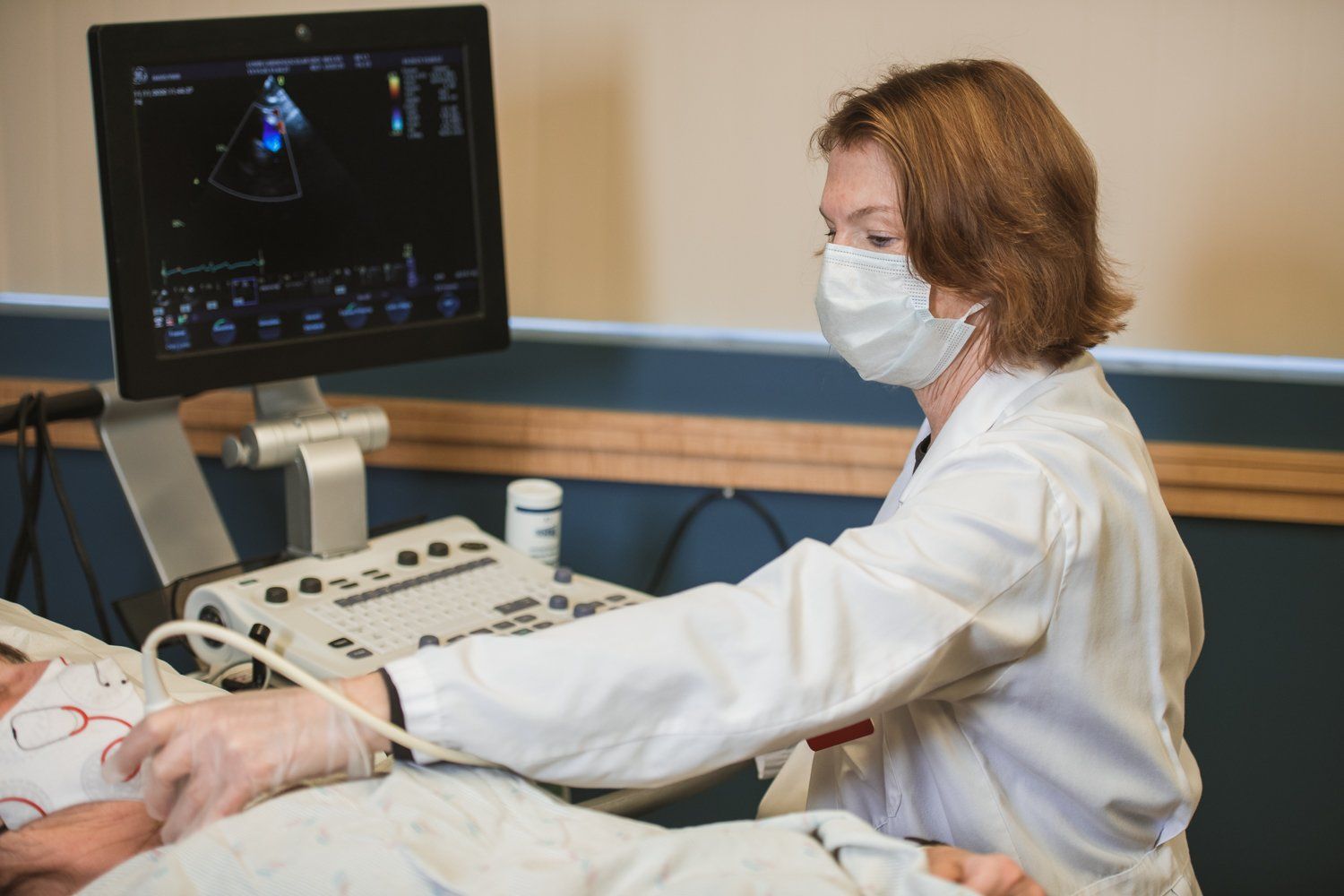Non-Invasive Testing
*Membership is not required to schedule testing at Lown Group
Cardiac Ultrasound (Echocardiogram)
The “echo” is an imaging technique that bounces sound waves through the chest to provide a two-dimensional image of the heart muscle, valves, and other cardiovascular structures. This test also provides important information about the pressure inside the heart and lungs. Heart muscle function is evaluated periodically to monitor changes over the years and to guide medical therapy. In patients who have sustained a heart attack, an echo helps assess how the heart is healing.
City skyline
City skyline
Exercise Tolerance Test (ETT)
Stress tests check for abnormal blood flow to the heart due to blocked heart arteries and evaluate the heart’s response to exercise. The most common type of stress test involves walking on a treadmill to increase heart rate and blood pressure. Stress tests provide information that may not be apparent on a resting electrocardiogram. Results of a stress test may help explain symptoms that you have reported to your physician.
Stress Echocardiogram (STE)
The stress echo combines the exercise tolerance test with an ultrasound of the heart, performed before and after exercise. This test looks at the squeezing function of the heart before and after exercise, which is an indication of blood flow. Normally, the heart function becomes stronger after exercise, however if there are blockages in the heart arteries, the muscle may become weaker.
City skyline
City skyline
Cardiopulmonary Stress Test (CPET)
A CPET is a stress test that includes the addition of pulmonary measurements. This is achieved by wearing a mouthpiece that collects breath-by-breath measurements of inhaled oxygen and exhaled carbon dioxide. A baseline pulmonary capacity test is performed on every athlete before starting exercise. Analyzing both cardiac and pulmonary function allows us to determine the source of any problems. We can also use this test to determine the anaerobic threshold and maximal oxygen consumption for athletes looking to enhance performance.
Vascular Ultrasound
This test uses ultrasound to evaluate blood flow in the neck arteries (carotid arteries) and/or in the veins and arteries of the arms and legs. Vascular testing may also be used to evaluate the abdominal aorta. It can detect narrowing of arteries, which may reduce the blood flow through these vessels, or atherosclerosis (“hardening of the arteries”). Vascular testing is performed in our office by Registered Vascular Technologists using state-of-the-art high-frequency ultrasound equipment.
Holter and Event Monitors
MoMe ARC® V2
The MoMe ARC® V2 by InfoBionic is an advanced remote cardiac monitoring system designed to provide continuous, high-quality heart health data—no matter where you are. It's tailored for patients who need ongoing monitoring, whether at home or on the go, and offers a comfortable, discreet experience. MoMe ARC® V2 combines a lightweight, wearable sensor with a smart Gateway device and a cloud-based platform. It continuously tracks your heart's rhythm, detecting potential issues like arrhythmias (irregular heartbeats) and sending real-time data to your healthcare team. This means your doctor can monitor your heart health remotely and intervene quickly if needed.
Defibrillator and Pacemaker Evaluations
Many of our patients have implanted pacemakers, defibrillators, or automatic internal cardiac defibrillators (ICDs). The Lown Cardiovascular Group provides full evaluations and monitoring for these devices, including telephonic surveillance.
Multiple clinical trials support the use of implantable cardioverter-defibrillators (ICDs) for the prevention of sudden cardiac death in patients with heart failure (HF).
Become a Member
Hospital Affiliations
The Lown Group is closely affiliated with the Brigham and Women’s Hospital and Harvard Medical School. Our Board-Certified physicians hold teaching positions at Harvard Medical School and faculty appointments at Brigham and Women’s Hospital. In the event of hospitalization or invasive procedures, we will make every effort to admit our patients to the Brigham and Women’s Hospital, where our physicians will see hospitalized patients daily to provide continuity between the hospital and clinical setting.











